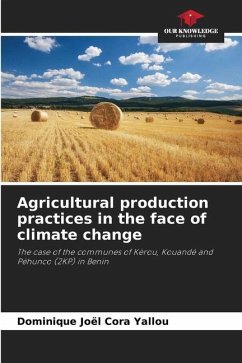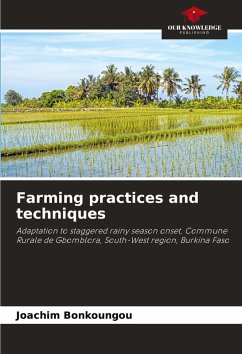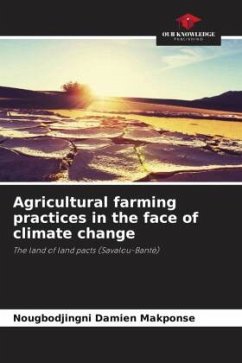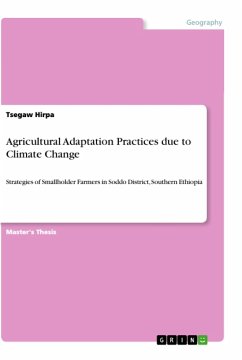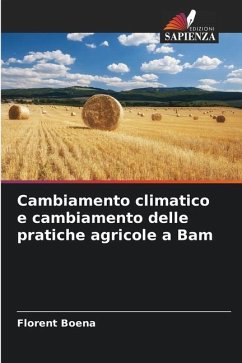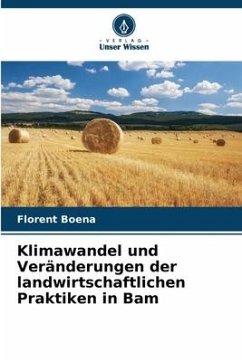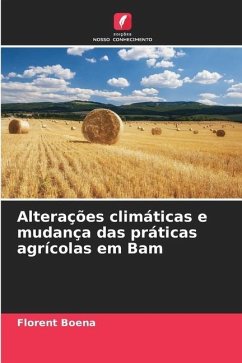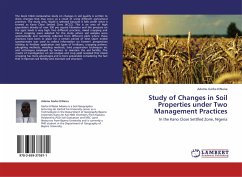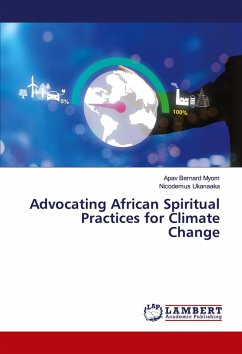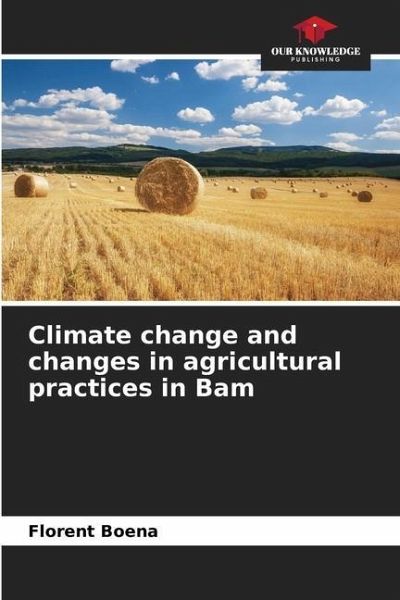
Climate change and changes in agricultural practices in Bam
Versandkostenfrei!
Versandfertig in 6-10 Tagen
43,99 €
inkl. MwSt.

PAYBACK Punkte
22 °P sammeln!
The effects of climate change are noticeable in Burkina Faso in the agricultural sector. In Bam province, these climatic changes are having an impact on production systems and, consequently, are leading to changes in farming practices. This book presents the relationship between climate change and changes in agricultural practices. The analysis of meteorological data shows that the climatic parameters are evolving in two distinct groups: the hours of insolation have strongly decreased, while rainfall, temperature, humidity, wind speed and evapotranspiration have increased. With the climatic ev...
The effects of climate change are noticeable in Burkina Faso in the agricultural sector. In Bam province, these climatic changes are having an impact on production systems and, consequently, are leading to changes in farming practices. This book presents the relationship between climate change and changes in agricultural practices. The analysis of meteorological data shows that the climatic parameters are evolving in two distinct groups: the hours of insolation have strongly decreased, while rainfall, temperature, humidity, wind speed and evapotranspiration have increased. With the climatic evolution as well as the societal one, the agrarian dynamics have undergone changes in the agricultural practices. Thus, the following stages have been observed: the development of slash-and-burn agriculture (1940-1960), the development of cotton cultivation and animal traction (1960-1970), the major edaphic and agricultural upheavals (1970-1988) and the agricultural conversion which, since 1989, has been deploying methods to deal with the consequences of the major upheavals.




